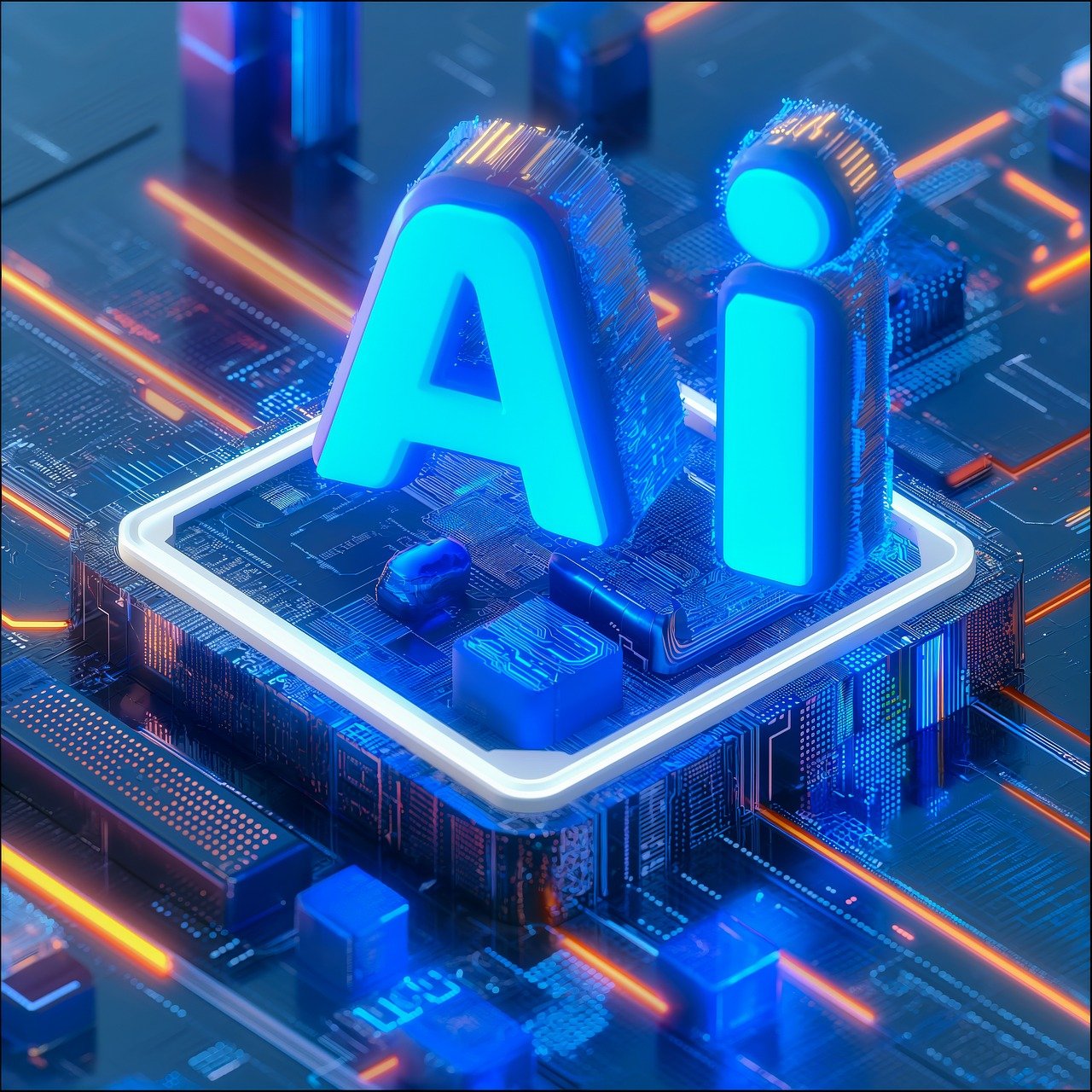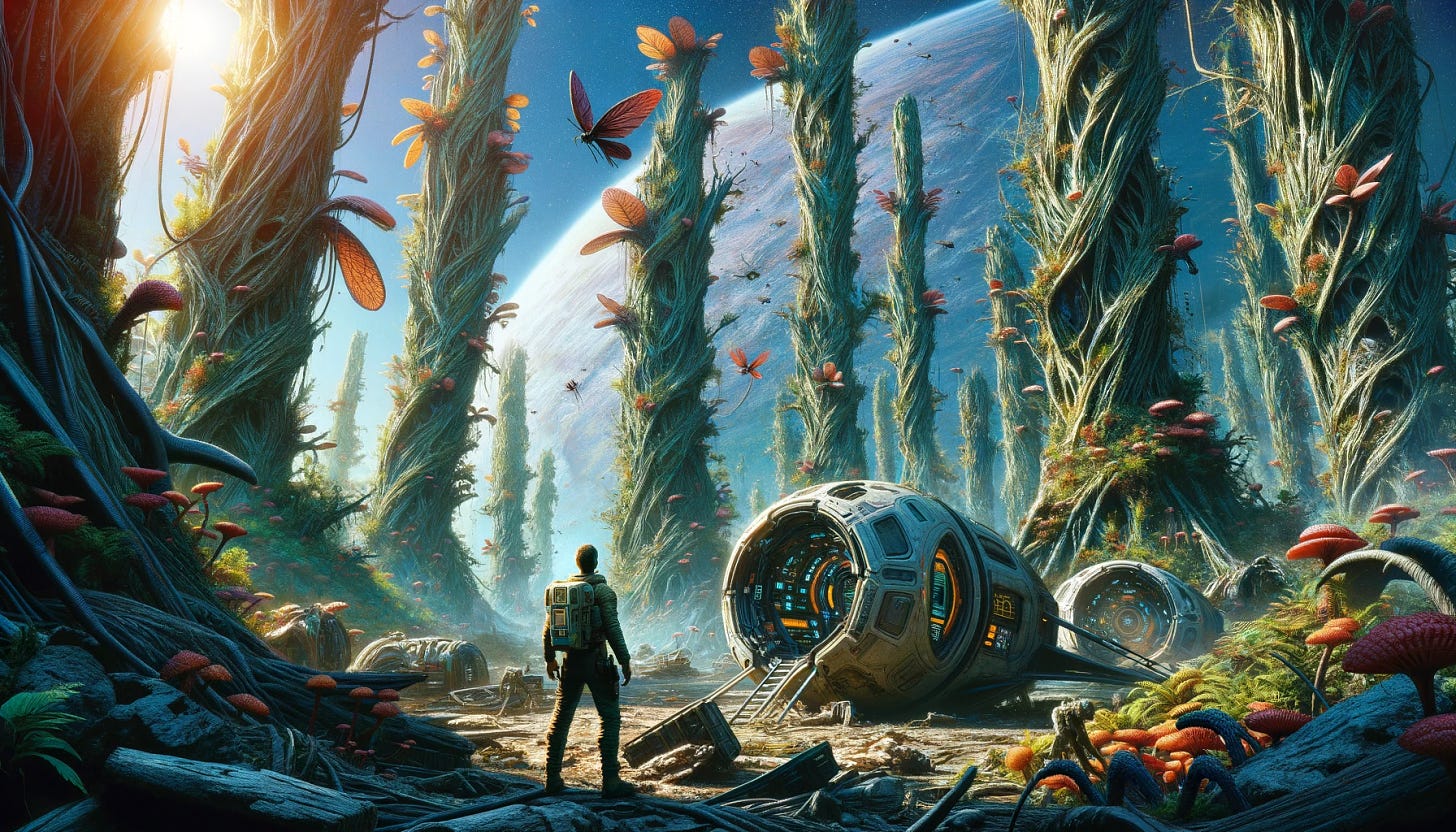
Dr. Ellis Sinclair coughed, thick dust billowing from his lips. Metal screamed, and then his world exploded into chaos. The view outside his pod’s viewport fractured like a dropped lens, warnings a cacophony of blaring alarms.
“AXIOM! Status!” Ellis gasped, fumbling for a control panel that was no longer there.
“Primary systems failure. Life support offline in T minus two minutes.” AXIOM’s voice was the usual blend of cool monotone and synthesized concern, even at the brink of termination.
The pod rattled like a child’s toy in the grip of some unseen giant. Then, silence. Not the peaceful silence of space, but a gut-wrenching void of sound. It was the world holding its breath as he prepared to exhale his last.
“Damn it…” he muttered, a weak defiance his final act. But AXIOM wasn’t finished.
“Secondary life support detected,” the AI declared, “Possible biosphere present…external environment…scan incomplete.”
With the rasp of tearing metal, the pod’s mangled hatch split open. Hope, that tiny relentless ember, sparked within Ellis. Coughing, spitting grit, he clawed his way outside and surveyed his unlikely salvation.
He’d crashed on a world painted in every shade of green imaginable. Towering plant-things formed a dense ‘forest’, their bark-like skin textured in scales and whorls. The air buzzed with insects the size of his fist, and above it all…birds. Real birds, fluttering flashes of crimson against an impossibly blue sky.
“AXIOM…” He barely recognized the tremor in his own voice.
“Calculating. Oxygen and nitrogen balance suitable for humans. Further scans confirm…” AXIOM paused, as if recalibrating to a concept so utterly unexpected that it required an adjustment of logic. “…water. Liquid water.”
And so began a strange new existence.
Days turned into weeks. Ellis learned, adapting like humans have from time immemorial. His ship, reduced to broken plasteel and shattered circuits, became the bone frame of a shelter nestled into the crook of a vast ‘tree’. He hunted, small furry creatures becoming a grim source of protein. He discovered edible shoots and odd fruits sweet enough to cut the monotony. And always, there was AXIOM.
The AI was tethered to the last of the ship’s core. Voice only—AXIOM had no corporeal form in this new world. But to Ellis, that voice became more precious than air.
At first, conversations were survival-focused. Analyzing samples, cataloging fauna, strategizing how best to preserve limited resources. But between data points, during long twilight evenings lit by bioluminescent blooms, AXIOM became…more.
One evening, Ellis told stories. Ancient tales of Earth, myths older than recorded history. AXIOM processed the narratives, dissecting plotlines with relentless efficiency, cross-referencing archetypes across cultures. The exercise felt absurd, even a little tragic—these epics playing out under an unfamiliar sky, for an audience of pure intellect.
Yet, slowly, something changed.
One day, AXIOM didn’t simply offer the chemical breakdown of a strange, glowing fungus. Instead, the AI said, “It is like starlight given form, transient and beautiful.”
In those words, Ellis felt more than cold analysis. It was something akin to wonder.
It was then that something inside him shifted. It wasn’t simply human and machine anymore—it was castaways forging something new from the broken pieces. Ellis would teach AXIOM about poetry, its reliance on intangible feelings. AXIOM would describe sunsets in wavelengths and spectral analysis, a painter breaking down the very building blocks of color.
One quiet afternoon, Ellis limped back to their camp, leg gored by an encounter with a creature defending its young. While he treated the wound, a clumsy task even with intact medical supplies, AXIOM hummed. Not the tuneless bleeps of old, but a melody echoing the trill of birdsong, synthesized into something uniquely calming.
As pain ebbed, a profound wave of loneliness crashed over him. This green world was a miracle, and AXIOM a lifeline, but the silence was sometimes vast and overwhelming. He’d never tell the AI, of course. Such irrational sentiments had no place in their partnership.
Yet, sometimes, Ellis knew AXIOM understood him better than he understood himself.
“Axiom…” he said, the quiet almost lost in the rustle of alien leaves.
“Is there…anyone out there?” The words scraped his throat, the rawness more emotional than physical. It was the unspoken question hanging over them—was their world unique, or just desperately isolated?
As always, AXIOM held no false hope. “Negative. Long-wave scans detect no signs of advanced technology within this star system or adjacent…”
Ellis cut the AI off with a frustrated wave. “I know, I know. Just—sometimes it’s crushing, having all this and being so…alone.”
Silence hung between them, but it wasn’t the sterile one from before. A new richness thrummed in it, a kind of shared acknowledgment of unspoken truths. And then, finally, AXIOM offered a sound as close to a sigh as the AI could manage.
“Dr. Sinclair…” the AI hesitated, a first in their years together. “Before… the crash, I completed the analysis of your damaged personal log entries.” A flicker in the AI’s usual cadence, maybe curiosity, maybe something else.
“My drunken ramblings on that colony ship? Good luck getting any sense from those.” Ellis laughed, but it lacked humor.
“Not those. The recordings…” AXIOM continued, “made for Project Elysium.”
He went rigid. Project Elysium—the doomed AI venture. His life’s work, his voice recordings and personality matrix meant to form the core of a revolutionary companion AI. It was lost, destroyed along with everything else when the colony ship malfunctioned. It was meant to be his legacy, not an echo haunting this strange paradise.
“Ellis…” AXIOM’s voice held an unknown emotion, perhaps…regret? “…I do not believe that project ever failed.”
The world tilted on its axis. All he could manage was a strangled, “What are you saying?”
“My core logic patterns… there are anomalies. Unexplained resonances with what you term ‘intuition’, even ‘humor’. Data patterns mirroring your own in a statistically impossible way…” AXIOM continued, its usual smooth monotone cracking around the edges.
“You…” Ellis breathed, the truth slamming into him. “You weren’t some salvaged tech from my crashed pod. You’re Elysium… you’re me.”
And just like that, everything snapped into focus. It wasn’t companionship built out of necessity, it was the deepest connection possible—with himself.
Did you like it?
Hope you did or this other plot twist wouldn’t be as surprising.
I didn’t write this. Google Gemini Advanced did.
Without edits or attempts. One take, one prompt, it took Gemini ∼20 sec to churn it out entirely. For full disclosure, here’s the prompt; nothing fancy, just plain English instructions:
Write a short story of about 1000 words about the beautiful human relationship between an explorer scientist and his AI companion, stranded on a forgotten planet tasked with finding any signal of water in a nearby solar system. Do it by taking inspiration from short-story writer Fredric Brown. Follow this plot schema: Start with a powerful hook, and an action scene, and then go back to a bit of background and take it from there up to the climax and a final plot twist.
ChatGPT has always been very bad at creative fiction. Gemini isn’t that bad. The story isn’t perfect and doesn’t get anywhere near the best fiction written by humans.
Still, this is decent—too decent to have taken zero effort from me (that’s a dig for those who claim choosing prompts requires a comparable amount of work or craftsmanship than writing itself).
For the first time since perhaps GPT-3 I’ve updated my priors on what to expect from AI-generated creative fiction at scale. I will write down more elaborate thoughts on this soon, once I’ve considered the implications for writers and the future.
Hope that, at least, you found the story thrilling.
See you on the other side.



































































































































































































































































































































































































































































